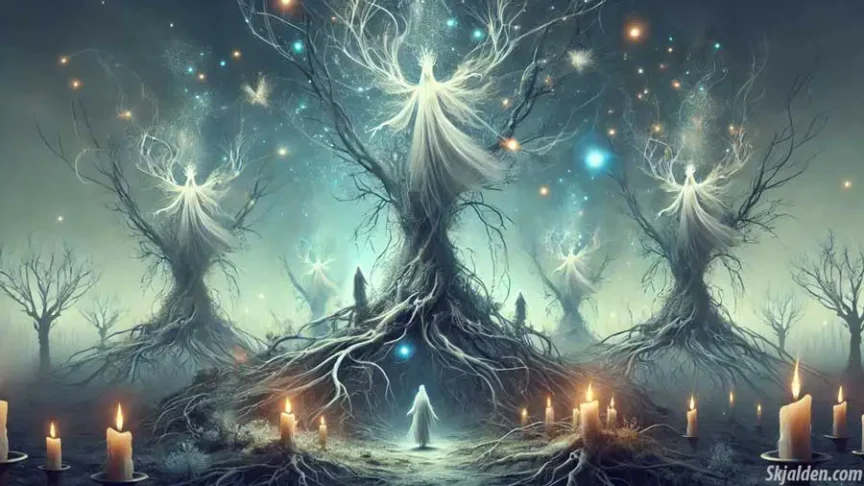In Norse mythology, vörðr (vǫrðr) are guardian spirits that accompany individuals from birth to death. These guardians significantly influence spiritual and cultural perceptions, shaping how individuals view their existence and the world around them. They play a pivotal role in folklore, deeply intertwining with personal and communal lore across Scandinavia.
The Nature and Role of Vörðr
The term ‘vörðr,’ from Old Norse, translates to “warden,” “watcher,” or “caretaker.” These spirits protect and oversee their charges, reflecting their enduring spiritual impact throughout centuries of Scandinavian folklore.
Vörðr are intricately linked to the individual’s soul, enhancing and interacting with other soul elements such as hugr, which represents the person’s mind or consciousness. This connection underlines their role as both protectors and manifestations of the individual’s spiritual essence.
Legends, like those involving Odin and his ravens, Huginn and Muninn—who symbolize thought and memory—likely reflect aspects of his vörðr, illustrating deep spiritual connections within Norse mythology.
Historical Accounts and Modern Interpretations
Sagas often portray vörðr as small lights or shapes that resemble the people they protect. These forms might appear before the person arrives, sensed by those attuned to such spiritual presences.
With the introduction of Christianity in Scandinavia, perceptions of vörðr evolved to resemble guardian angels or symbols of conscience, showcasing the cultural and religious blending of the era.
“Warden trees,” central to Norse spirituality, also highlight the role of vörðr. These sacred trees—often lindens, ashes, or elms—stood as physical representations of a family’s vörðr. Communities revered these trees, believing spirits resided under their roots, and made offerings to these spirits to ward off misfortune.
The dynamic interplay of mythology and spiritual evolution in the study of vörðr offers compelling insights into Norse culture. It demonstrates a sophisticated understanding of their worldview, with vörðr continuing to hold relevance in modern interpretations of Norse beliefs, emphasizing their significance in both historical and spiritual dimensions of life.
